

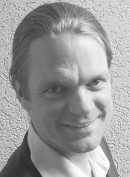 |
Christian BauckhageChristian Bauckhage is professor of media informatics at the University of Bonn and lead scientists for multimedia pattern recognition at the Fraunhofer Institute for Intelligent Analysis and Information Systems (IAIS). He obtained a PhD in computer Science from Bielefeld University, Germany, and was a postdoctoral researcher in the Centre for Vision Research in Toronto, Canada. Later, he worked as a senior research scientist at Deutsche Telekom Laboratories in Berlin, where he conducted and coordinated industrial ICT research. He is an expert in large scale data mining and pattern recognition and researches computational intelligence approaches to social media analysis and computer games. He is a regular reviewer for leading journals and conferences and has (co)authored more than 100 technical papers on pattern recognition, computer vision, web data mining, and game AI. |
 |
Christian BockermannChristian Bockermann is a Ph.D. student at the Technische Universitt Dortmund. He received his diploma in Computer Science in 2007 and is involved in various projects with a strong focus on streaming data, ranging from IP-TV usage analytics over log- management to stream processing of telescope data. He is the creator of the streams framework, which focuses on the modeling of streaming applications from small devices (Raspberry PI, Android) to larger compute clusters. |
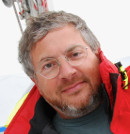 |
Rich CaruanaRich Caruana is a Senior Researcher at Microsoft Research. Before joining Microsoft, Rich was on the faculty at the CS Department at Cornell University, at UCLA’s Medical School, and at CMU’s Center for Learning and Discovery (CALD). Rich’s Ph.D. is from Carnegie Mellon University where he worked with Tom Mitchell and Herb Simon. His thesis on Multi-Task Learning helped generate interest in a new subfield of machine learning called Transfer Learning. Rich received an NSF CAREER Award in 2004 (for Meta Clustering), best paper awards in 2005 (with Alex Niculescu-Mizil), 2007 (with Daria Sorokina), and 2014 (with Todd Kulesza, Saleema Amershi, Danyel Fisher and Denis Charles), co-chaired KDD in 2007 (with Xindong Wu), and serves as area chair for NIPS, ICML, and KDD. His current research focus is on learning for medical decision making, deep learning, adaptive clustering, and computational ecology. |
 |
Jian-Jia ChenDr. Jian-Jia Chen joined Department of Informatics at TU Dortmund in Germany as Professor of Design Automation of Embedded Systems (Lehrstuhl 12) in April 2014. Before joining TU Dortmund, he was Juniorprofessor in Department of Informatics in Karlsruhe Institute of Technology (KIT) from May 2010 to March 2014. He received his Ph.D. degree from Department of Computer Science and Information Engineering, National Taiwan University, Taiwan in 2006. He received his B.S. degree from the Department of Chemistry at National Taiwan University 2001. After finishing the compulsory civil service in Dec. 2007, between Jan. 2008 and April 2010, he was a postdoc researcher at Computer Engineering and Networks Laboratory (TIK) in Swiss Federal Institute of Technology (ETH) Zurich, Switzerland. His research interests include real-time systems, embedded systems, cyber-physical systems, energy-efficient and power-aware designs. He received Best Paper Awards from ACM Symposium on Applied Computing (SAC) in 2009 and IEEE International Conference on Embedded and Real-Time Computing Systems and Applications (RTCSA) in 2005, 2013, and SmartGreen in 2014. |
 |
Marlene DoertMarlene Doert received her diploma degree in physics with a focus on experimental Astroparticle Physics at TU Dortmund in 2009, where she gained experience in the analysis of data collected with the MAGIC gamma-ray telescopes and the usage of HP Computing for large-scale simulation production. She continued her work in the Astroparticle Physics research group at TU Dortmund as a PhD student, focusing on the topic of 'Statistical Data Analysis' techniques, in particular on the method of Deconvolution of experimental data. After receiving her PhD in early 2013, she moved to the Astroparticle research group at Columbia University, New York City, where she worked on the classification of promising gamma-ray sources based on large catalogs of data, employing data mining techniques using RapidMiner. Since the beginning of this year, Dr. Doert is back working at TU Dortmund, where she gives lectures on Astroparticle Physics and continues her research in the field of data analysis techniques and experimental gamma-ray astronomy. |
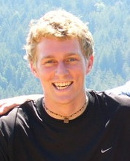 |
John DuchiJohn is an assistant professor of Statistics and Electrical Engineering at Stanford University. He completed his PhD in computer science at Berkeley in 2014. His research interests span statistics, computation, optimization, and machine learning. At Berkeley, he worked in the Statistical Artificial Intelligence Lab (SAIL) under the joint supervision of Michael Jordan and Martin Wainwright. He obtained his MA in statistics in Fall 2012, and received a BS and MS from Stanford University in computer science under the supervision of Daphne Koller. John has won several awards and fellowships, including a best student paper award at the International Conference on Machine Learning (ICML) and the NDSEG and Facebook graduate fellowships. John has also worked as a software engineer and researcher at Google Research under the supervision of Yoram Singer and Fernando Pereira. |
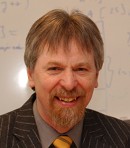 |
Peter MarwedelDr. Peter Marwedel studied physics at the University of Kiel, Germany. He received his PhD in that subject in 1974. As a post-doc, he published some of the first papers on high-level synthesis and retargetable compilation in the context of the MIMOLA hardware description language. In 1987, his habilitation thesis in computer science (a thesis required for becoming a professor) was accepted. Since 1989, he is holding a chair for computer engineering and embedded systems at the computer science department of TU Dortmund. He is also chairing ICD, a local spin-off of TU Dortmund. His research interests include design automation for embedded systems, in particular the generation of efficient embedded software. Focus is on energy efficiency and timing predictability. Since 2001, Dr. Marwedel published papers on energy-efficient software and compiler-supported use of scratchpad memories. He is the author of one of the few textbooks on embedded systems. Since 2011, he is the vice-chair of the collaborative research center SFB 876, aiming at resource-efficient analysis of large data sets. Dr. Marwedel is an IEEE Fellow. |
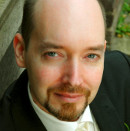 |
Stefan MichaelisStefan Michaelis received is Ph.D. in electrical engineering and information technology on macro-mobility prediction. His research interests are especially in analysis of communication networks, including mobile cellular networks. The data mining results are used to enhance overall network quality of service. Since 2011 Stefan Michaelis is executive director of the collaborative research center SFB 876. He is contact person regarding every questions about organization and research aspects of resource-constrained analysis. |
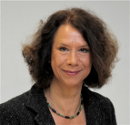 |
Katharina MorikKatharina Morik received her Ph D at the university of Hamburg 1981 and worked in the well-known natural language project HAM-ANS at Hamburg from 1982 to 1984. Then, she moved to the technical university Berlin and became the project leader of the first German machine learning project, KIT-Lerner. From 1989 to 1991 she was leading a research group for machine learning at the German National Research Center for Computer Science at Bonn. This team developed the MOBAL system within the ESPRIT project Machine Learning Toolbox (P2154). In 1991, she became full professor at the university of Dortmund. Together with Professor Yves Kodratoff, she organized the first European Summer School on Machine Learning and gave a tutorial on this topic at the ECAI-88. She was the chair person of the 11th German Workshop on Artificial Intelligence in 1987 and organized an international workshop on "Knowledge Representation and Organization in Machine Learning" in the same year. The fourth European Working Session on Learning was chaired by her in 1989. At the IJCAI-91 she organized a workshop on "Evaluating and Changing Representation in Machine Learning", together with Francesco Bergadano and Wray Buntine. Until 1994 she was the leader of the German special interest group in machine learning of the German Society for Computer Science. Katharina Morik is speaker of the collaborative research center SFB876. |
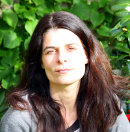 |
Céline RobardetCéline Robardet is an associate professor at INSA-Lyon France and the leader of the Data Mining and Machine Learning team of the LIRIS lab. She obtained a PhD in computer Science from the university of Lyon 1, France, in 2002 for proposing one of the first co-clustering method. Then, she got a one year post-doctoral position to work with biologists on the analysis of gene expression data. During 2008, she spent 6 months in the ADReM team of the University of Antwerp, Belgium. Her main research interests include several aspects of data mining and combinatorial optimization. She is particularly interested in: clustering analysis, pattern extraction under constraints and complex dynamic network analysis. |
 |
Melanie SchmidtMelanie Schmidt studied computer science in Dortmund with a focus on efficient algorithms and theoretical computer science. She wrote her Diploma thesis (master thesis) on earliest arrival flows in Berlin under the supervision of Martin Skutella. Afterwards she started her PhD in Dortmund. Her advisor is Christian Sohler, and her research focus is the analysis and development of clustering algorithms in the context of Big Data. |